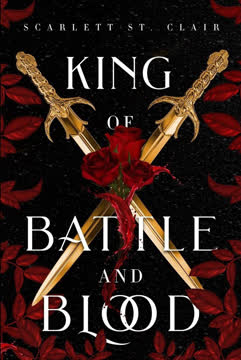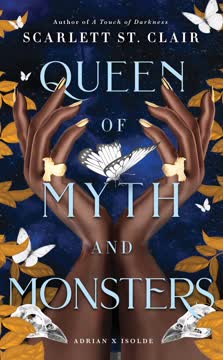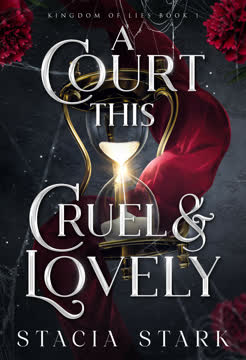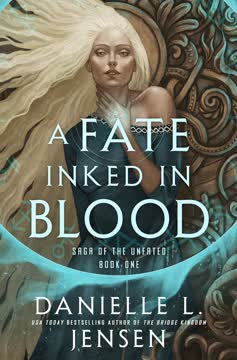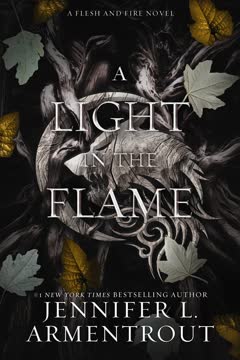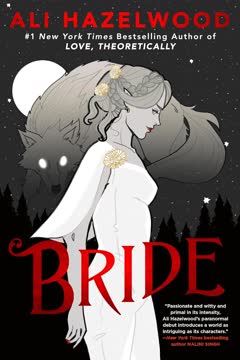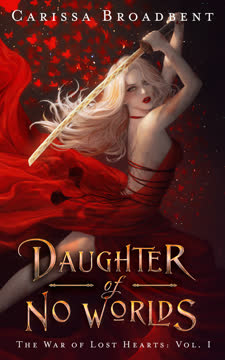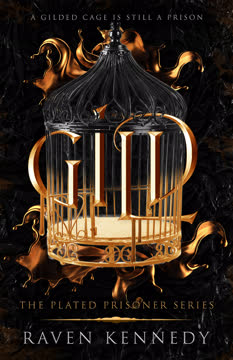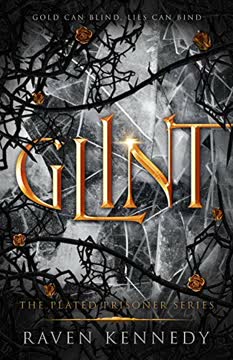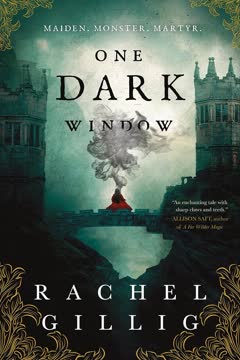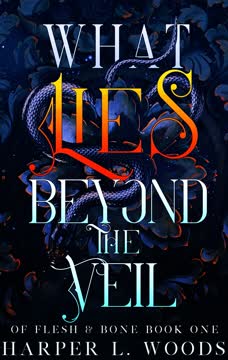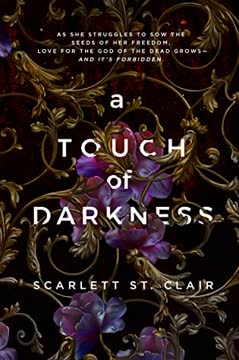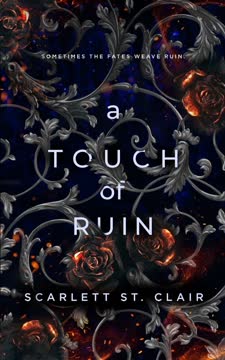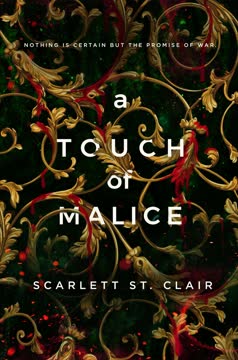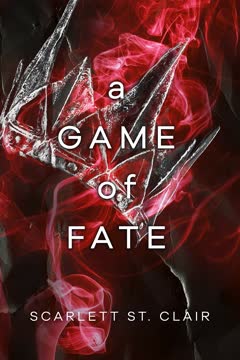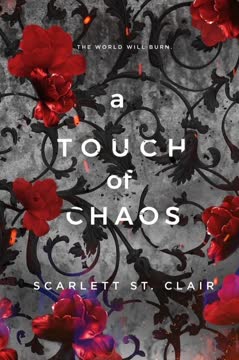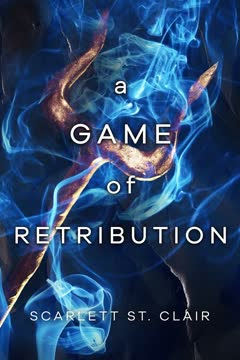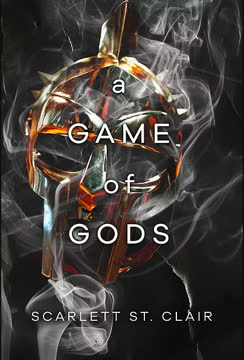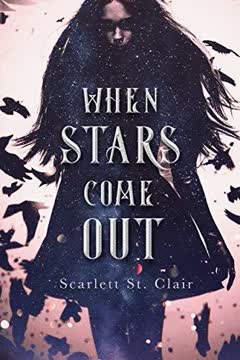Plot Summary
Red Sky, Dark Tidings
Isolde, princess of Lara, surveys the cursed red sky as an army of vampires led by the infamous Blood King, Adrian, encamps at her kingdom's border. Tension and fear grip her people, but Isolde's spirit is unbroken. She is a warrior, trained to fight monsters, yet the true threat is not just the supernatural but the uncertainty of her father's decision to negotiate rather than fight. The world is haunted by legends of Adrian's conquests and the goddess Dis's curse, which birthed vampires and monsters. Isolde's independence and defiance set her apart, but as she faces the encroaching darkness, she senses the end of her old life and the beginning of something far more dangerous and transformative.
The Blood King's Bargain
Negotiations between King Henri and Adrian take a shocking turn when the Blood King demands Isolde's hand in marriage in exchange for peace. The court erupts in outrage, but Isolde, torn between duty and self-preservation, recognizes the cost of refusal: war and slaughter. Her father's heartbreak is palpable, and Isolde's own agency is tested as she chooses to sacrifice her freedom for her people's survival. Adrian's motives are enigmatic, his presence both terrifying and magnetic. The bargain is struck, and Isolde's fate is sealed—not as a victim, but as a player in a game of power, desire, and destiny.
Sacrifice and Surrender
The aftermath of the bargain leaves Isolde isolated and scrutinized. Her people see her as both savior and traitor, while her father is consumed by guilt. Isolde's relationship with her former lover, Commander Killian, fractures under the weight of her new reality. She steels herself for the role of sacrificial bride, determined to find strength in her suffering. The looming wedding is not just a political act but a personal crucible, forcing Isolde to confront her own desires, fears, and the possibility that her enemy may not be the monster she's been taught to hate.
Enemy's Touch, Lover's Claim
Isolde's first encounters with Adrian are charged with both animosity and undeniable attraction. He is a paradox: brutal conqueror and attentive lover, monster and man. Their physical connection is immediate and overwhelming, challenging everything Isolde believes about herself and her enemy. Adrian's touch awakens a hunger in Isolde that is both magical and deeply human, blurring the line between captivity and complicity. As she navigates the treacherous court and her own conflicted heart, Isolde realizes that pleasure and power are intimately entwined in the Blood King's world.
A Kingdom in Chains
The wedding marks the end of Lara's independence and the beginning of Isolde's reign as queen in a foreign, hostile land. The ceremony is somber, devoid of joy, and Isolde's people mourn her as lost. Her new life is one of constant surveillance, political intrigue, and the ever-present threat of violence. Isolde's sense of self is tested as she is forced to play the role of consort, yet she refuses to be passive. She seeks knowledge, allies, and ways to protect her homeland from within the heart of the enemy's court.
Wedding of War and Will
Isolde and Adrian's wedding night is a battlefield of its own. Their union is consummated with passion and pain, each testing the other's limits. Isolde attempts to kill Adrian, but he is unkillable, and their struggle only deepens their connection. The night is a crucible, forging a bond of mutual respect, desire, and challenge. Isolde emerges not as a conquered bride but as a queen determined to carve out her own power, even as she is haunted by the pleasure her enemy gives her and the secrets he keeps.
Night of Blood and Desire
As Isolde adjusts to her new life, her nights with Adrian become a source of both torment and ecstasy. Their relationship is a dance of dominance and surrender, each encounter leaving Isolde more entangled in Adrian's world. She is both repulsed and fascinated by the vampire court's sensuality and violence. The boundaries between love and hate, freedom and captivity, blur further as Isolde discovers that her own desires may be as dark and dangerous as those of the monsters she once feared.
Betrayal at the Border
A failed assassination attempt by her former lover, Killian, and a violent attack by her own people shatter Isolde's illusions of home and loyalty. Forced to defend herself against those she once sought to protect, Isolde is left bloodied and traumatized. Adrian's response is swift and brutal, executing those who threaten his queen. The experience hardens Isolde, teaching her that survival in this new world requires ruthlessness and that the lines between friend and foe are ever-shifting.
Monsters in the Mist
A mysterious crimson mist begins to sweep through the land, killing entire villages in horrific ways. Isolde, Adrian, and their allies race to uncover the source, suspecting the involvement of a powerful witch from Adrian's past. The mist is not just a physical threat but a symbol of the old world's unresolved wounds and the dangers of unchecked power. As Isolde investigates, she is drawn deeper into the history of magic, the legacy of the Burning, and the true nature of the monsters that haunt her world.
The Queen's Awakening
Haunted by visions and dreams, Isolde begins to recover memories of a past life as Yesenia, a powerful witch and Adrian's lost love. The revelation is both liberating and terrifying, forcing Isolde to reconcile her present identity with the woman she once was. Her bond with Adrian deepens, becoming both a source of strength and vulnerability. As she embraces her power and her past, Isolde realizes that her destiny is not just to survive but to rule—and to change the fate of kingdoms.
Court of Wolves
Isolde navigates the treacherous politics of Adrian's court, where allies are few and enemies are many. She faces jealousy, assassination attempts, and the machinations of nobles who resent her influence. The court is a den of wolves, and Isolde must learn to be cunning, ruthless, and strategic. Her relationship with Adrian is tested by secrets, old wounds, and the ever-present threat of betrayal. Yet, through it all, Isolde refuses to be a pawn, determined to become a queen in her own right.
The Witch's Shadow
Ravena, a witch exiled from the High Coven, emerges as the architect of the crimson mist and the chaos consuming the land. Her vendetta against Adrian and Isolde is personal and deadly, rooted in ancient betrayals and unfulfilled ambitions. Ravena's mastery of dark magic and her ability to manipulate mirrors and minds make her a formidable foe. Isolde must confront not only Ravena's power but also the legacy of the Burning and the cost of magic in a world ruled by fear.
The Burning Rites
The annual Burning Rites, meant to commemorate the massacre of witches, become a stage for both mourning and rebellion. Isolde witnesses the depth of pain and injustice that still festers in Revekka, and the celebration is marred by violence, poison, and the resurgence of old enemies. The rituals force Isolde to confront her own complicity, her evolving loyalties, and the need to forge new alliances if she is to survive and lead.
Poison and Power
Isolde is poisoned at a feast, and the court is thrown into chaos. Adrian's wrath is unleashed as he seeks the traitor responsible, executing nobles and vassals alike. The attempt on Isolde's life exposes the deep divisions and resentments within the court, as well as the precariousness of her own position. Isolde's recovery is both physical and political, as she must reassert her authority and prove that she is not so easily destroyed.
The Past Reborn
As Isolde's memories of her life as Yesenia fully awaken, she gains access to knowledge and power long thought lost. The revelation transforms her relationship with Adrian, binding them together in a love that transcends lifetimes. Yet, the return of her magic also makes her a target for Ravena and those who fear the resurgence of the old ways. Isolde must decide how to wield her power and what kind of queen she will become.
The Book of Dis
The discovery of the Book of Dis, a legendary tome of dark magic, becomes the focal point of the struggle between Isolde, Adrian, and Ravena. The book holds the secrets to both salvation and destruction, and its power is coveted by all. Isolde's connection to the book is personal and profound, as she realizes she was its author in a past life. The battle for the Book of Dis is a battle for the soul of the kingdom and the future of magic itself.
The Queen's Sacrifice
Betrayed by those closest to her, including her own father, Isolde is forced to make impossible choices. The cost of power and love becomes painfully clear as she is confronted with the need to kill or be killed. The death of her father at her own hand is a devastating blow, shattering her illusions and hardening her resolve. Isolde emerges from the ordeal transformed, no longer a pawn but a queen forged in fire and loss.
The Crimson Mist
The crimson mist descends upon the palace, threatening to consume all. Isolde, Adrian, and their allies fight desperately to survive, facing Ravena's full power and the consequences of ancient curses. The battle is both physical and spiritual, as Isolde must draw upon her memories, her magic, and her love for Adrian to overcome the darkness. The victory is hard-won, but it comes at a terrible cost, leaving scars that will shape the future of the kingdom.
The Death of Kings
The aftermath of the battle is marked by grief, reflection, and the burning of old kings. Isolde mourns her father, her innocence, and the world that was lost. Adrian and Isolde's bond is tested but ultimately strengthened by their shared suffering and sacrifice. The court is purged of traitors, and new alliances are forged in the ashes of the old order. The death of kings paves the way for a new era, one in which Isolde's vision and power will determine the fate of all.
The Hope of a Kingdom
Isolde, now fully queen of Revekka and future queen of Cordova, stands at the threshold of a new world. She is no longer defined by sacrifice or survival but by her own will and vision. With Adrian at her side, she vows to protect her people, confront the legacy of magic, and shape a future free from the tyranny of monsters—both human and supernatural. The hope of the kingdom rests on her shoulders, and for the first time, Isolde embraces her destiny, ready to conquer, rule, and love on her own terms.
Characters
Isolde de Lara
Isolde is the fierce, independent princess of Lara, trained as both a ruler and a fighter. Her sense of duty to her people is matched only by her refusal to be controlled, whether by her father, her former lover Killian, or the Blood King Adrian. Psychoanalytically, Isolde is driven by a deep need for agency and self-definition, rebelling against the roles imposed upon her. Her journey is one of transformation: from sacrificial pawn to powerful queen, from victim to agent of her own fate. The awakening of her past life as Yesenia, a witch and Adrian's lost love, adds layers of complexity, forcing her to reconcile her present identity with ancient wounds and desires. Her relationships—with her father, with Adrian, with her people—are fraught with betrayal, longing, and the search for belonging. Isolde's arc is one of self-acceptance, as she learns to wield both her power and her vulnerability.
Adrian Aleksandr Vasiliev (The Blood King)
Adrian is the enigmatic and feared king of the vampires, a being shaped by loss, vengeance, and the curse of the goddess Dis. His reputation as a ruthless conqueror masks a deep well of pain and longing, particularly for Yesenia, the witch he loved and lost. Adrian's relationship with Isolde is both redemptive and destructive, as he seeks in her both a partner and a salvation. He is a master of power, both political and sensual, but his greatest weakness is love—a vulnerability that makes him both dangerous and deeply human. Adrian's development is marked by his struggle to balance his monstrous nature with his capacity for tenderness, his desire for control with his need for connection. His bond with Isolde is the axis upon which the fate of kingdoms turns.
King Henri de Lara
Henri is a ruler haunted by the weight of his decisions and the loss of his wife. His love for Isolde is genuine but often expressed through control and fear, leading to tragic consequences. Henri's willingness to sacrifice his daughter for the greater good is both a mark of his devotion to his people and a fatal flaw. His arc is one of decline, as he is forced to confront the limits of his power and the cost of his choices. Henri's relationship with Isolde is the emotional core of her early life, but it is ultimately shattered by betrayal and the demands of kingship.
Commander Killian
Killian is Isolde's former lover and the commander of Lara's guard. He is defined by his devotion to Isolde, his resentment of Adrian, and his inability to accept Isolde's autonomy. Psychologically, Killian is driven by insecurity and a need for validation, which manifests as possessiveness and, ultimately, betrayal. His arc is one of decline, as his attempts to protect and possess Isolde only drive her further away. Killian's inability to adapt to the new world order marks him as a relic of the past, unable to survive in the world Isolde is creating.
Ana Maria
Ana is Adrian's cousin and a healer, both in the traditional and magical sense. She is a bridge between the old world of witches and the new world of vampires, embodying both compassion and strength. Ana's relationship with Isolde is one of deep friendship and shared trauma, as both women have lost and loved across lifetimes. Her arc is marked by grief, particularly after the loss of her vassal and lover, Isla, but also by resilience and the willingness to embrace change. Ana's presence grounds Isolde, reminding her of the importance of connection and the cost of power.
Sorin
Sorin is one of Adrian's most trusted allies, a vampire with the rare ability to shape-shift into a falcon. He is both a warrior and a confidant, providing comic relief and emotional support. Sorin's loyalty is unwavering, but he is also marked by a tragic past and a deep understanding of the cost of immortality. His relationship with Daroc is both romantic and strategic, adding depth to his character. Sorin's arc is one of survival and adaptation, as he navigates the shifting allegiances of the court and the dangers of the world.
Daroc Zbirak
Daroc is Adrian's general and second-in-command, a figure of strength, discipline, and unyielding loyalty. He is a man of few words, but his actions speak volumes. Daroc's relationship with Sorin is a rare source of vulnerability, revealing a softer side beneath his stern exterior. He is a guardian of both the kingdom and its secrets, and his presence is a constant reminder of the dangers that lurk within and without. Daroc's arc is one of duty, sacrifice, and the struggle to balance personal loyalty with the demands of leadership.
Ravena
Ravena is the primary antagonist, a witch exiled from the High Coven for her ambition and use of forbidden magic. She is driven by envy, resentment, and a desire for power, seeking to destroy Adrian and Isolde as retribution for ancient wrongs. Ravena's mastery of dark magic, particularly the crimson mist, makes her a formidable foe. Psychologically, she is a study in the corrosive effects of bitterness and the dangers of unchecked ambition. Her arc is one of self-destruction, as her quest for power ultimately isolates and consumes her.
Violeta
Violeta is Isolde's lady-in-waiting, a human with a personal history of loss and survival. Her family's connection to the Burning and the persecution of witches gives her a unique perspective on the events unfolding in Revekka. Violeta is resourceful, loyal, and quietly courageous, providing Isolde with both practical support and emotional grounding. Her arc is one of healing, as she learns to trust and find purpose in a world that has often been hostile to her kind.
Vesna
Vesna is a young woman rescued by Isolde from a life of abuse and exploitation. She represents the possibility of redemption and the importance of compassion in a world defined by violence. Vesna's journey from victim to valued member of Isolde's household mirrors Isolde's own transformation, and her presence is a reminder of what is at stake in the struggle for power and justice.
Plot Devices
Forced Marriage as Political Weapon
The central plot device is the forced marriage between Isolde and Adrian, which serves as both a personal and political crucible. The marriage is not just a means of securing peace but a battleground for power, desire, and agency. It allows for the exploration of themes of consent, autonomy, and the ways in which personal relationships are entangled with the fate of nations. The marriage is also a site of transformation, as both Isolde and Adrian are changed by their union, discovering strength, vulnerability, and the possibility of love in the most unlikely of circumstances.
Dual Identity and Reincarnation
Isolde's gradual awakening to her past life as Yesenia is a key plot device, providing both foreshadowing and revelation. The use of dreams, visions, and magical triggers allows the narrative to explore the cyclical nature of trauma, love, and power. The reincarnation plot device deepens the emotional stakes, as Isolde and Adrian's relationship is revealed to be both ancient and inevitable. It also raises questions about fate, free will, and the possibility of breaking old patterns.
The Crimson Mist and Magical Threat
The crimson mist, a magical weapon unleashed by Ravena, serves as both a literal and symbolic threat. It is a manifestation of unresolved historical trauma—the legacy of the Burning and the persecution of witches—and a catalyst for action. The mist's indiscriminate destruction forces alliances, exposes betrayals, and tests the limits of power. Its origins in forbidden magic and its connection to the Book of Dis provide a narrative throughline that ties together personal and political conflicts.
Court Intrigue and Betrayal
The vampire court is a microcosm of the larger world, rife with jealousy, ambition, and treachery. Assassination attempts, poisonings, and shifting alliances create a constant sense of danger and uncertainty. The court's dynamics force Isolde to adapt, learn, and assert herself, transforming her from outsider to ruler. The ever-present threat of betrayal, even from those closest to her, underscores the novel's themes of trust, loyalty, and the cost of power.
The Book of Dis and Forbidden Knowledge
The Book of Dis is both a MacGuffin and a symbol of the dangers and possibilities of knowledge. Its secrets are coveted by all, and its power is both seductive and destructive. The book's connection to Isolde's past life and its role in the final confrontation with Ravena make it central to the resolution of the plot. The struggle over the book raises questions about the ethics of power, the legacy of trauma, and the possibility of redemption.
Blood Magic and Bonding
The act of bloodletting—Adrian feeding from Isolde—serves as both a literal and metaphorical bond. It is a source of pleasure, vulnerability, and power, tying their fates together in a way that is both intimate and perilous. The blood bond is a plot device that raises the stakes, making Isolde both Adrian's greatest strength and his greatest weakness. It also serves as a metaphor for the ways in which love and power are always entwined with risk and sacrifice.
Analysis
Scarlett St. Clair's King of Battle and Blood is a lush, dark fantasy that uses the trappings of vampire romance to explore deeper themes of power, trauma, and transformation. At its core, the novel is about the cost of survival in a world defined by violence and the ways in which love can be both a weapon and a salvation. Isolde's journey from sacrificial pawn to sovereign queen is a powerful meditation on agency, identity, and the possibility of breaking cycles of abuse and betrayal. The novel's use of reincarnation and magical memory foregrounds the persistence of trauma across generations, while its depiction of court intrigue and supernatural threats highlights the dangers of unchecked ambition and the need for compassion. The relationship between Isolde and Adrian is both a subversion and an intensification of the "enemy-to-lover" trope, using physical desire as a site of both conflict and healing. Ultimately, the book suggests that true power lies not in domination or destruction, but in the willingness to confront the past, embrace vulnerability, and choose one's own destiny—even when the world demands sacrifice.
Last updated:
Review Summary
King of Battle and Blood received mixed reviews, with an average rating of 3.71 out of 5. Many readers enjoyed the vampire romance and steamy scenes, but criticized the plot as underdeveloped and predictable. Some praised the fast-paced writing and strong female lead, while others found the characters shallow and the relationship lacking depth. The book was often compared to other popular fantasy romances. Despite its flaws, many readers found it entertaining and addictive, though some felt it relied too heavily on explicit content at the expense of story.
Adrian x Isolde Series
Similar Books
Download PDF
Download EPUB
.epub digital book format is ideal for reading ebooks on phones, tablets, and e-readers.
